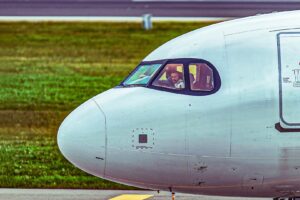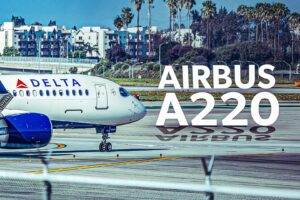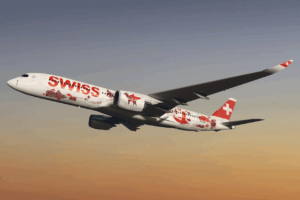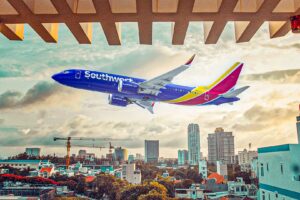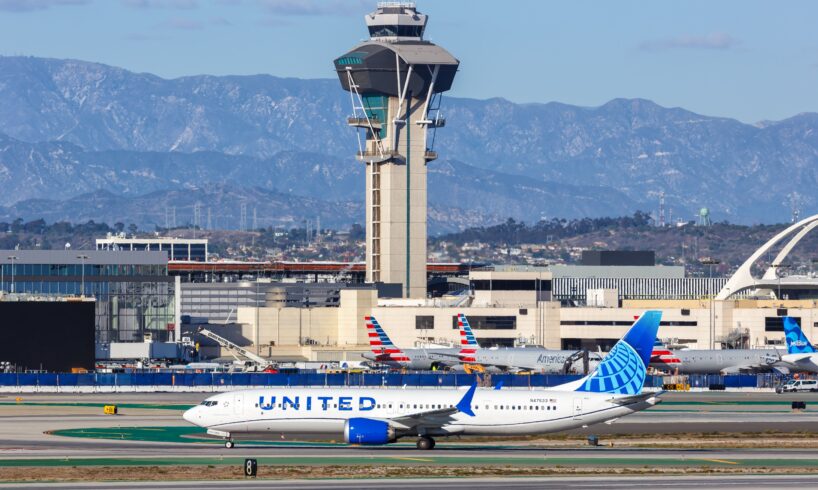
Airlines in the United States of America have been granted a delay concerning the deadline that the Federal Aviation Administration ( FAA) had previously imposed in order for carriers to install secondary cockpit barriers on new commercial aircraft. This initiative had initially had an August 2025 cutoff, but the FAA has now decided to push the deadline back a year, prompting an array of mixed responses.
On the one hand, some groups argue that the current lack of certification and corresponding regulations makes it impractical to install secondary cockpit barriers at such short notice. However, others assert that to delay the deadline is to put America’s pilots at risk, even though existing security procedures will remain in place during the extended exemption period. Let’s see what’s what.
Photo: Phatranist Kerddaeng | Shutterstock
As reported by Reuters, the FAA declared yesterday that it had agreed to push its previously announced deadline for the installation of secondary cockpit barriers on new commercial aircraft at US airlines back by a year. This announcement comes just over a month after regional airlines from the country asked for a two-year delay, due to the possibility that such carriers may risk missing compliance.
The proposed two-year delay was supported by the advocacy group Airlines For America. According to Runway Girl Network, a spokesperson for A4A explained that its “request was simply a reflection of the practical fact that there is a current lack of FAA certification of secondary barriers.” However, Air Line Pilots Association (ALPA) President Jason Ambrosi opposed the delay, explaining that:
“The FAA’s decision to grant airlines yet another delay on the secondary barrier rule is deeply disappointing and undermines our nation’s aviation security. While we acknowledge this ruling falls short of the unacceptable [two-year] delay requested by Airlines for America, this extension still compromises the safety and security of our skies.”
The Story So Far
Photo: Sorbis | Shutterstock
Cockpit barriers have been a hot topic in the United States of America for more than two decades, with the 9/11 terrorist attacks in 2001 having illustrated the worst-case scenario when it comes to cockpit breaches on commercial aircraft. The FAA first tabled the idea of forcing new airliners to have two cockpit barriers in June 2023, reinforcing the existing rule that requires doors to be closed in-flight.
At the time of this proposal, the FAA planned for it to apply to new airliners from mid-2025, with carriers, therefore, not needing to take existing planes out of service in order to retrofit them with such systems. Another key aspect of the idea was that it would only apply to airlines operating scheduled flights, meaning that charter carriers would be free to choose not to install secondary barriers.
Just under a year later, in May 2024, former US President Joe Biden enshrined this proposal into American law by signing the ‘FAA Reauthorization Act of 2024.’ This bill mandated that it would be a legal requirement to install secondary cockpit barriers on new commercial aircraft until at least 2028, with the National Transportation Safety Board (NTSB) being reauthorized to keep it going after that.
Related
Secondary Cockpit Barriers Finally Become Mandatory On Commercial Aircraft More Than 20 Years After 9/11
The US House 387-26 adopted the rule and placed it before the President.
Some Are Dissatisfied With The Temporary Solutions
Photo: M_Makarov | Shutterstock
Until now, and during the extended exemption period, airlines have needed to use somewhat rudimentary procedures in order to keep the cockpit secure with a makeshift second barrier. Most notably, as Runway Girl Network explains, some have been “[using] a trolley to block the entrance to the forward galley during those brief instances when the cockpit door is open,” such as when pilots use the bathroom.
However, these methods have been criticized by some as being inadequate. For instance, Indiana-based US Representative André Carson has called out the slow implementation of the new legislation, saying that airlines “shouldn’t have to rely on beverage carts” in order to keep their flight decks secure. However, per Reuters, A4A says that the delay will ensure that proper certification and training can be sorted.


